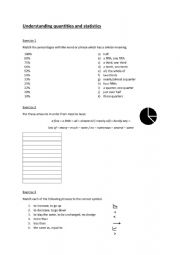
|
Vocabulary for quantities, statistics and trends
3 vocabulary exercises covering vocab to do with quantities, statistics and trends.
2 graphs to describe using the new language.
2 listening exercises (one audio, one video - links provided) to practise comprehension of numbers and statistics.
Level: advanced
Age: 10-100
Type:
Downloads: 13
|

|
Reading comprehension: world�s largest drawing
A reading text from the Guinness World Records website about the world�s largest drawing - a drawing of a turtle created to raise awareness of marine pollution.
The 4 exercises are general comprehension questions, detailed comprehension questions, a vocabulary builder, and an open-ended writing task.
The answers are included on the last page.
Level: advanced
Age: 10-100
Type:
Downloads: 37
|
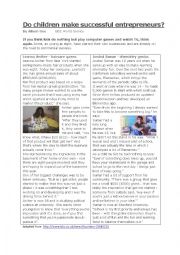
|
Do children make good entrepreneurs? ARTICLE
Articles about 2 child entrepreneurs. Associated exercises cover: general comprehension (summarise main points), detailed comprehension, vocabulary and paraphrasing.
Level: intermediate
Age: 13-100
Type: reading
Downloads: 77
|
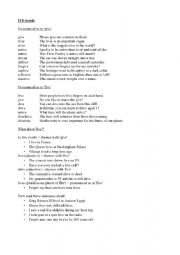
|
IVE pronunciation in English
A handout showing the two main ways of pronouncing the letter combination IVE in English - as in �give� or as in �five.�
Special consideration is given to the problem of live/live/alive/lives.
Level: intermediate
Age: 8-100
Type:
Downloads: 12
|
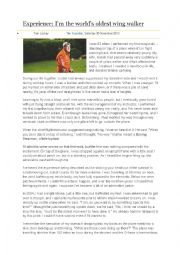
|
World�s oldest wing walker: article and questions
Article about the world�s oldest wing walker with comprehension questions and language analysis questions. Answers in red on p3.
Level: advanced
Age: 15-100
Type: article
Downloads: 41
|
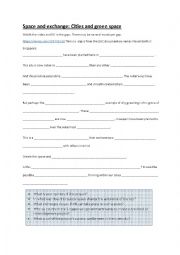
|
Singapore: super trees - video and text comprehension
For the topic �space and exchange� - a video about green space in Singapore followed by two articles from which learners must extract key points. Final exercise offers some open-ended discussion questions. Would be well suited to small group work or homework. (Answers to the video comprehension are provided on the last page of the document.)
Level: advanced
Age: 12-100
Type: reading
Downloads: 24
|
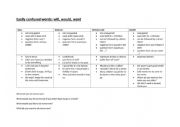
|
Easily confused words: will, would, want, would like
An overview of 4 easily confused and misused verb structures: will, would, would like, want.
There are simple exercises to practise the question and negative form of these structures, and then reading comprehensions and questions which use the structures in context.
Answers are provided on p4 of the document.
Level: intermediate
Age: 8-100
Type: worksheet
Downloads: 15
|
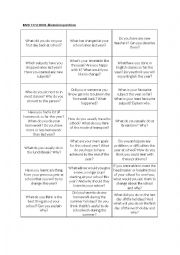
|
Back to school discussion questions
21 "back to school" discussion questions and phrases to include in answers.
Would work as a 1-1, paired, group or whole class discussion activity.
Designed to stimulate discussion and reflection in the first weeks of term.
Level: advanced
Age: 14-100
Type: activity-card
Downloads: 65
|
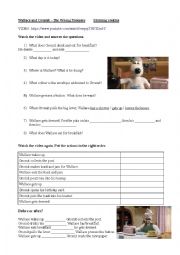
|
Morning routine video: Wallace and Gromit
A short video clip (under 2 minutes) from the Wallace and Gromit animation "The Wrong Trousers" with exercises using morning routine vocabulary.
Grammar point: before and after.
Level: elementary
Age: 6-100
Type: worksheet
Downloads: 73
|
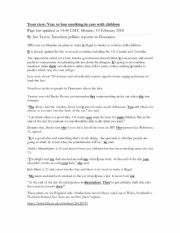
|
Practise PRONOUNS - based on article about smoking in cars with children
Text about a ban on smoking in cars with children and associated exercises on pronoun use. Designed to be used after a lesson on pronouns to show pupils why it�s important in the �real world� to aid with text comprehension.
Level: advanced
Age: 14-100
Type: article
Downloads: 24
|